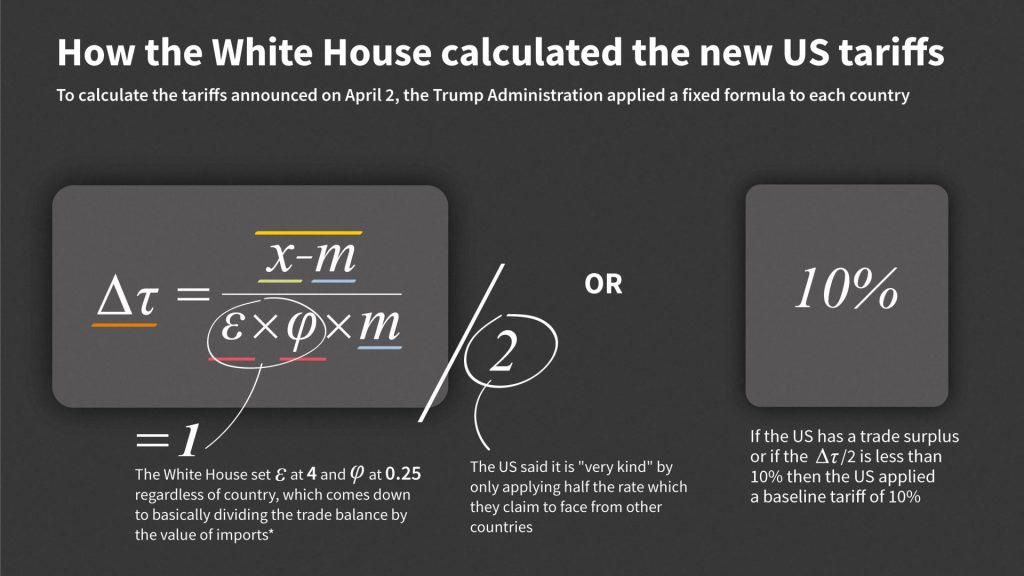The formula at the core of President Donald Trump’s tariff announcement that continues to rattle markets is bewildering economists, who say it is based on flawed assumptions.
Economists argue that Trump’s formula relies on a flawed, underestimation of a key metric, resulting in inflated tariff rates for countries.
According to the Office of the United States Trade Representative, the formula underpinning Trump’s sweeping “reciprocal” tariff plan is the country’s trade deficit with the U.S., divided by its exports, then divided by two. Trump also implemented a 10% baseline tariff on almost every country.
However, Trump’s formula for calculating tariff rates for nations around the world is based on an elasticity rate lower than it should be in practice, according to senior fellows Kevin Corinth and Stan Veuger with the American Enterprise Institute. The formula assumes an elasticity of import prices with respect to tariffs of about 0.25, but the economists say that that number should be closer to 1.0 (0.945).
“Their mistake is that they base the elasticity on the response of retail prices to tariffs, as opposed to import prices as they should have done,” the scholars wrote.
The tariffs that Trump imposed range from 10% to 50% on nations around the world. If the assumptions surrounding elasticity are adjusted in Trump’s formula, no country’s tariff would exceed 14%, and most would be at exactly 10%, the baseline established by the Trump administration.
For instance, under the plan Trump rolled out this week, the tariff rate for Lesotho, the country with the highest rate, was 50%. But if adjusted, it would be 13.2%.
Another report out this week from the Cato Institute also found a flaw in the formula that Trump used to justify the tariffs.
The report found that the trade-weighted average tariff rates that Trump used to justify his reciprocal tariffs are higher than they are in practice.
For instance, the Cato Institute said the 2023 trade-weighted average tariff rate from China was 3%, but the Trump administration said it was 67%.


